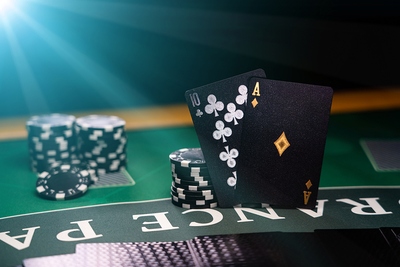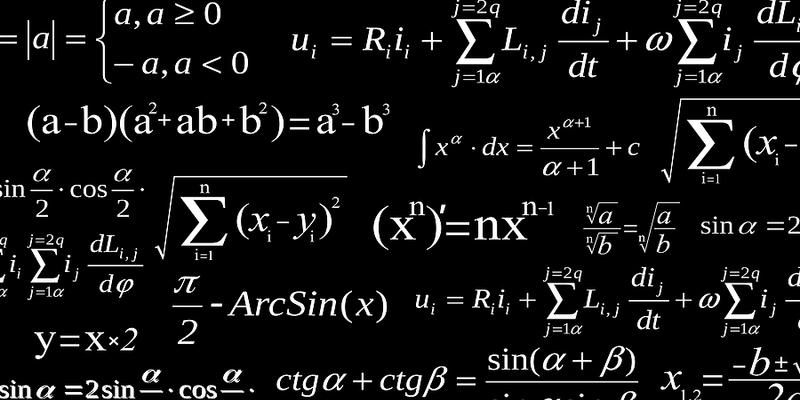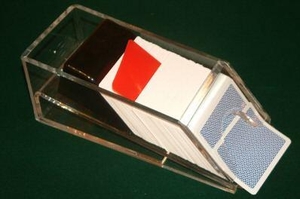 A natural blackjack is a hand with a combined value of 21 made up of an Ace and a 10 value card, so 10, J, Q, or K. It can only occur on the initial deal, which means the first two cards dealt.
A natural blackjack is a hand with a combined value of 21 made up of an Ace and a 10 value card, so 10, J, Q, or K. It can only occur on the initial deal, which means the first two cards dealt.
It is also possible to reach 21 by hitting after the initial deal, but although this might give you the same hand value it is not classed as blackjack. Only the Ace/10 value card combination can do that.
Blackjack is the name of the game so it is the best hand you can receive, impossible to beat and netting the player 1.5x their bet immediately. It’s a special hand, but that means it is also infrequent – if it wasn’t it wouldn’t be so special would it?
Just how often you can expect to be dealt blackjack is useful information, and that is what we will cover below.
Probability of Being Dealt Blackjack
One of the unique things about blackjack as a casino game is that what happens before directly affects what might happen after. This means that the probability of a specific card coming up next changes after each new card is dealt.
To explain further, if an Ace is dealt during a single deck game of blackjack (single deck=52 cards) then the probability of another Ace coming up next drops from 4/52 to 3/51 – that’s a drop from a 7.69% chance to a 5.77% chance.

In most other games like roulette, online slots etc, each spin is independent so you have the exact same chance of the roulette ball landing on red twenty on spin 1 as you do on spin 501. The last result does not effect the next.
With blackjack it is the opposite, and the number of decks used in a game further adjusts the chances of getting a natural blackjack. Still, it is possible to work out.
If we imagine a single deck game with just one player against the dealer, the maths would be as follows:
Chances of getting an Ace 1st = 4/52 (reduced down to 1/13)
Chances of getting a 10 value card 2nd = 16/51
1/13 x 16/51 = 16/663
Flip that around and you get the same result, albeit in a slightly different way:
Chances of getting a 10 value cards 1st = 16/52 (reduced down to 4/13)
Chances of getting an Ace 2nd = 4/51
4/13 x 4/51 = 16/663
To get the total probability of being dealt blackjack we need to add these two numbers together:
16/663 + 16/663 = 32/663 = 4.82%
If you divide 100 by 4.82 you can work out how many hands on average you will need to play to get blackjack, and funnily enough, it is 21. So you would be dealt blackjack once in 21 games going by probability alone.
Chances of Getting Blackjack in Multi Deck Games

Credit: Wiki Commons
The probability of a natural blackjack don’t actually change that much when playing games that use more decks, but it does go down a little bit.
You can technically play blackjack with any number of decks but you will usually find either six or eight being used, occasionally just the one and even less frequently two.
Here is how things look depending on the number of decks used:
| Number of Decks | Blackjack Probability |
|---|---|
| 1 | 4.827% |
| 2 | 4.780% |
| 6 | 4.749% |
| 8 | 4.745% |
The equation to get these results is the same but the number of cards obviously changes.
Question About Getting Blackjack
What are the Odds of the Dealer Getting Blackjack?
The dealer has the exact same chance as you other than the fact that they are always dealt second. Even if they are dealt an Ace as their up card they still only have a 31% chance of hitting blackjack with their second card, which is why insurance is a rubbish bet.
What Happens if the Dealer & the Player Both get Blackjack?
House rules may differ here. Some pay out immediately when the player gets blackjack without allowing the dealer to check for blackjack, in which case the player wins as normal.
Others may allow the dealer the check for blackjack before paying out, assuming they are showing an up card that can create blackjack of course. If they do end up with blackjack then the hand is a push and your stake is returned.
Why is it Called a Natural Blackjack?
A natural blackjack means a hand made up of an Ace and a 10 value card. An Ace can count as a 1 or an 11, which is why it can create a hand worth 21 when combined with a 10 value card.
This is a natural blackjack and is difficult to get, as opposed to a hand worth 21 but made up of a different combination of cards.
Why Does the Player Lose if They Have 21 & the Dealer has Blackjack?
If you create a hand worth 21 made up of several different cards but the dealer then reveals a natural blackjack you will lose the bet. This is because it is easier to create a hand worth 21 than it is to get a natural blackjack, so the least probable hand wins.
If you think about it, there are many combinations that could equal 21; two 9s and a 3; a 6, an 8 and a 7; a 10, a 5 and a 6 – we could go on. There is only one way to get blackjack.
